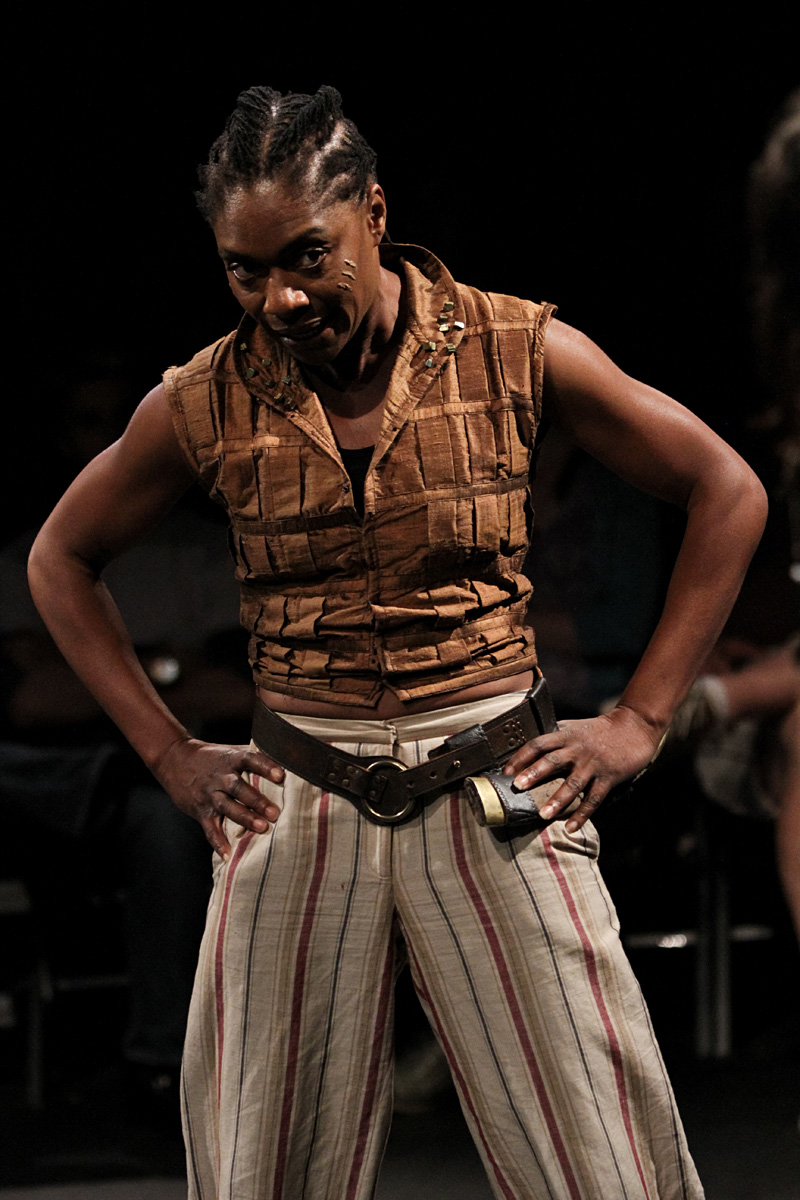The all-female Upstart Crow’s game stab at Shakespeare’s early revenge play has many merits—first among them a riveting actress named Nike Imoru. She plays “villain” Aaron, the Moorish lover of Tamora, queen of the Goths (Ki Gottberg), who’s been taken captive by stoic, ritual-bound Roman general Titus Andronicus (Amy Thone). Silent in chains with the other captives, Imoru’s Aaron is both reptile-calm yet simmering with intelligence, vibrating at a different frequency, hyper-alive. This, along with her masterful diction, signals that Aaron is no ordinary hostage.
However, to enable Imoru to pop that way, director Rosa Joshi stultifies many of the other roles, particularly the Romans. That’s plausible given the formality of imperial Roman culture, but it’s hardly succulent to watch. (Goths Sarah Harlett and Peggy Gannon are rowdier.) Thone’s Titus mostly shambles about, a hobbled ex-warrior funneling the world through the narrow channel of his imagination. Between managing his dwindling coop of offspring (the dead ones loom on shelves in Carol Wolfe Clay’s blood-marked Pier 1 canopic jars) and plotting revenge on Tamora, Titus stays busy. Thone pitches the pedantry perfectly, uttering staccato the line “I. Have. No. More. Tears. To. Shed,” as though Titus’ body had been amputated from his hand, not the other way around. Fortunately, that’s when Aaron and Tamora’s plot goes into overdrive, hell breaks loose, and the production veers toward a ZinZanni-esque, culinary-themed conclusion that’s bizarrified by jaunty Schubert waltzes. Tonally, we’re all over the place (and so was Shakespeare at this stage in his career); Joshi magnifies the muddle in some fun ways that suggest Martin McDonagh more than Elizabethan theater.
Despite the spotty text, Upstart Crow manages to wring a surprising degree of pathos from Titus’ daughter Lavinia (the delightful Brenda Joyner) and her tongueless grasping for communication; from Aaron’s allegiance to his child; and even from Titus’ final creaky crackup. Each of the play’s big set pieces is memorable, and there’s plenty to look at in Wolfe Clay’s set (presented in the round), decked with bloody plastic shower curtains and a bowl of pulpy organs. Kim Newton’s time-defying costumes suggest 1930s fascism pitted against a helplessly subordinate counterculture. It’s a world that feels familiar.
While the distaff casting didn’t exactly illuminate the text for me, it’s rewarding to see strong female performers get a bigger slice of Shakespeare’s gory pie.








